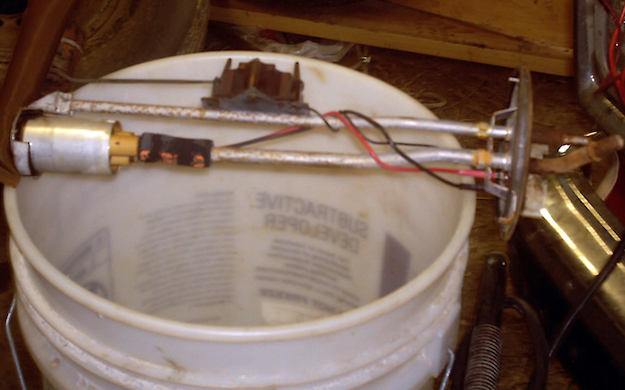
How to Tell if Your Fuel Pump is Bad
How to Tell if Your Fuel Pump is Bad – Tips and Strategies
Having a full tank of fuel doesn’t do any good if it can’t get to your vehicle’s engine, which is where your fuel pump comes in. But like any mechanical part, a fuel pump won’t last forever. These tips and warning signs will help you determine if the fuel pump needs to be replaced on your vehicle.

- You hear a whining or howling noise from the fuel tank. Electric fuel pumps make a clicking or buzzing sound when they’re functioning normally. Whining, howling and whirring are early signs the pump is going south.
- Your vehicle suddenly “surges” when moving at consistent speed. You’re driving at 35 mph, and your vehicle suddenly speeds up to 40 mph even though you didn’t press any harder on the gas pedal. It could be ghosts in the machine – or a sign your fuel pump has irregular resistance within the motor.
- You experience a loss of power when accelerating or under stress. Even a balky fuel pump can be sufficient when moving at a constant speed on flat roads. But if you lose power when accelerating, going up hills or hauling loads, your engine isn’t getting the fuel it needs.
- Your vehicle suddenly becomes a gas guzzler (or more of one). When the relief valve on your fuel pump doesn’t open, more fuel goes into the engine then is necessary. If you suddenly need to stop for gas a lot more often, this could be why.
- Your vehicle doesn’t start or has trouble starting. This is the endgame of a bad fuel pump – when it can’t even get enough fuel to the engine to properly start it.
There are two ways to test your fuel pump if you suspect it’s bad. First, put your key in the ignition and turn it to the On or Accessory positon (without starting the car); you should hear the pump start up. If it doesn’t start, attach a fuel pressure gauge to the pressure valve near the engine, and compare the reading to the recommended pressure in your OEM, Clymer, Haynes or Chilton Total Car Care manual. If the pressures are significantly different, it may be time for a new pump.

 Shop Store
Shop Store











